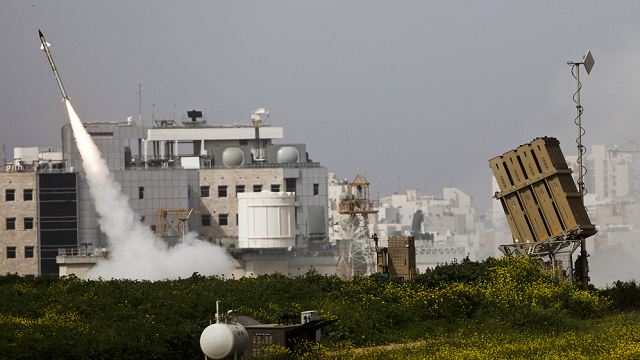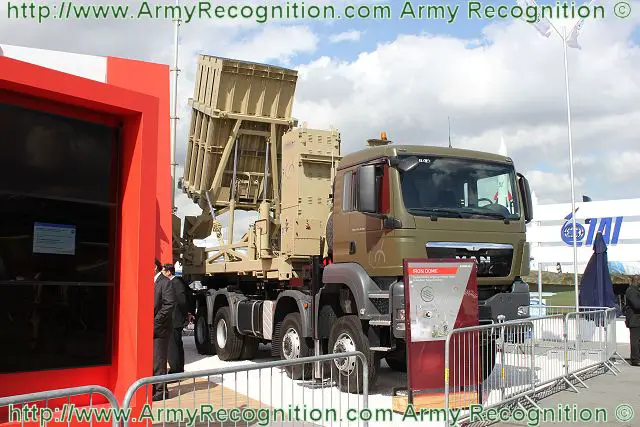| a | |||
Military Defense Technology News - Israeli Iron Dome |
|||
| Tuesday, March 13, 2012, 08:38 AM | |||
| Israeli Iron Dome anti-rocket air defense missile system surpasses expectations. | |||
Long
lines of people have made their way to the Iron
Dome batteries deployed in southern Israel in recent days,
distributing gifts and chocolates to Aerial Defense Network soldiers and
admiring the life-saving systems that have been operating non-stop. (Author:
Daniella Bokor, Idan Sonsino IDF) |
|||
 An Israeli missile is launched from the Iron Dome system in response to a rocket launch from the nearby Palestinian Gaza Strip, on March 12, 2012 near Ashdod, Israel. |
|||
| |
|||
Behind
the intensive field work of the soldiers stand the brilliant minds that
developed the breakthrough technology, which has preserved the relative
sanity of the hundreds of thousands of residents of the Ashkelon, Ashdod,
and Be'er Sheva areas. |
|||
"I
have mixed feelings today," Elta Chairman Major (ret.) Nissim Hadas
told IDF Website. "As a citizen of a country where there are millions
of citizens under the threat of rockets and in shelters, I do not feel
comfortable. The attacks are not something that we have control over,
but our contribution to the security of the country by means of the Iron
Dome provides great satisfaction." "The feeling is that we've succeeded in producing a system that provides protection. You can think about what would happen if the system did not exist. The south would be a completely different place. We may have had to go to war if the home front was exposed as it was before." "For me, the greatest importance of the Iron Dome is protecting the sensitive points in Israel. The interceptions provide relative security and allow for the continuation of routine life as much as possible. We at Elta are located in Ashdod and we had full attendance of employees because of the sense of security. There were many sirens and we went in and out but we continued to work." The Iron Dome operates day and night, in all weather conditions, and can intercept rockets with a range of less than 70 kilometers and mortars. It can also intercept low-flying aircraft. The Iron Dome has had a greater than expected record of operational successes. The first battery was deployed around a year ago in Be'er Sheva and its first operational interceptions occurred while it was still in a test phase. The Iron Dome is designed to only intercept rockets that are identified as heading for populated areas and strategic spots. Since the escalation began on Friday, the Iron Dome has intercepted more than 90 percent of the rockets that it has targeted, a higher rate than anticipated. The Elta chairman said that, even with the Iron Dome's proven success, improvements will continue to be made. He also said that residents of the south should continue to abide by Home Front Command instructions and not become complacent. |
|||
Israeli Iron Dome anti-rocket air defense missile system surpasses expectations 1303122
- Posted On















